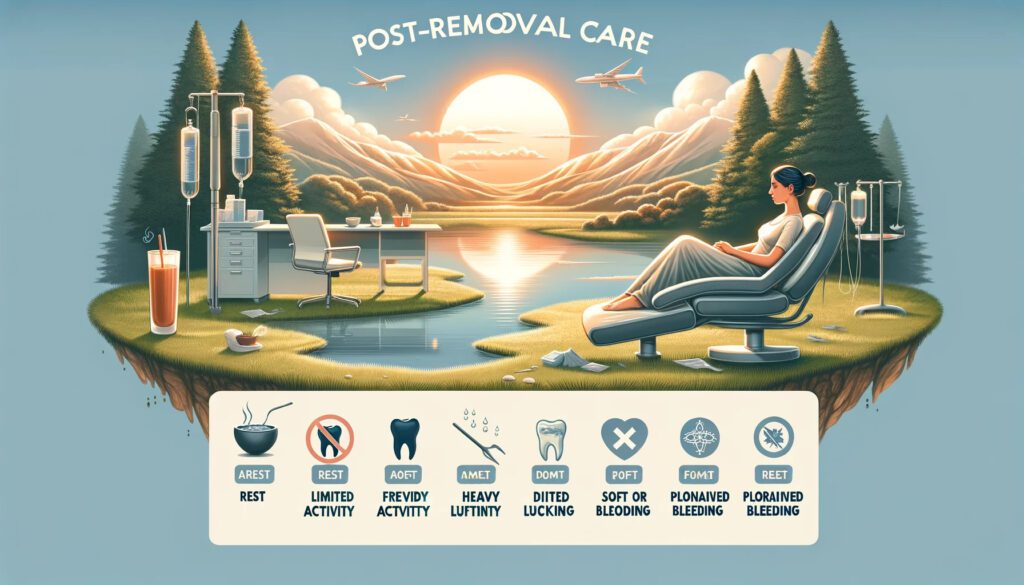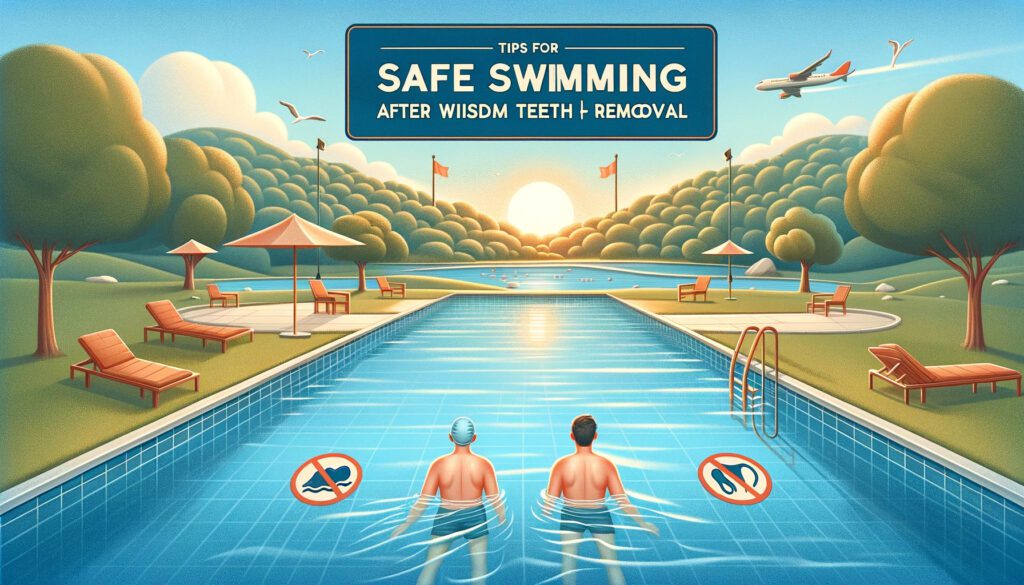Swimming after wisdom teeth removal is a common concern for many patients. The prospect of jumping into a pool or ocean might seem like a refreshing way to recover, but it’s essential to understand the potential risks and guidelines to ensure a safe and smooth healing process.
This article will explore the considerations and precautions one should take when thinking about swimming after undergoing wisdom teeth extraction.
Table of Contents
Understanding Wisdom Teeth Removal
What Are Wisdom Teeth?
Wisdom teeth, or third molars, are the last set of teeth to develop and emerge in your mouth, typically appearing between the ages of 17 and 25. Not everyone gets wisdom teeth, and for those who do, they may not always need to be removed.

Why Are They Removed?
Wisdom teeth are often removed due to lack of space in the mouth, which can cause them to become impacted, leading to pain, infection, and other dental issues.
The Removal Process
The procedure for removing wisdom teeth varies depending on the tooth’s position and development stage. It can range from a straightforward extraction to a more complex surgical procedure involving incisions and bone removal.
Post-Removal Care
Immediate Aftercare
After wisdom teeth removal, it’s crucial to follow your dentist’s or oral surgeon’s aftercare instructions to facilitate healing and avoid complications. These typically include rest, limited physical activity, and a soft food diet.
Potential Complications
Complications can include dry socket, infection, swelling, and prolonged bleeding. It’s important to monitor your recovery and contact your dentist if you experience severe or worsening symptoms.

Swimming After Wisdom Teeth Removal
Risks and Considerations
Swimming too soon after surgery can increase the risk of infection and disrupt the healing process. Chlorinated pools, bacteria in natural water bodies, and the physical activity associated with swimming can all pose potential risks.
Infection
Water can harbor bacteria and other pathogens that can enter the extraction sites, leading to infection.
Dry Socket
This painful condition occurs when the blood clot at the extraction site is dislodged. Engaging in activities like swimming can increase the risk of developing dry socket.
Delayed Healing
The pressure and activity associated with swimming can disrupt the healing tissue, leading to increased swelling, bleeding, or even the reopening of the wound.
When Can I Swim Again?
The general recommendation is to avoid swimming for at least one to two weeks after wisdom teeth removal. However, this can vary based on individual healing rates and the complexity of the extraction. Always consult with your dentist or oral surgeon before returning to swimming or any other physical activities.
Tips for Safe Swimming After Wisdom Teeth Removal
If you’ve received the green light to swim from your dental professional, consider the following tips to ensure a safe experience:
- Wait for Proper Healing: Ensure your extraction sites have adequately healed to prevent infection and other complications.
- Start Slowly: Ease back into swimming with light, non-strenuous activities to avoid disrupting the healing process.
- Use Mouth Protection: Consider using a mouthguard to protect your gums and extraction sites.
- Avoid Diving and Jumping: High-impact activities can increase blood pressure and disrupt the healing sites.
- Monitor for Symptoms: Pay attention to signs of infection or pain and consult your dentist if you experience any adverse effects.

Check Also: Can I Eat a Quesadilla After Wisdom Teeth Removal?
Frequently asked Questions
How long after wisdom teeth removal can I swim?
Typically, you should wait at least one to two weeks before swimming to allow your mouth to heal properly. However, the exact time can vary based on individual healing rates and the complexity of your extraction.
Why is it not recommended to swim immediately after wisdom teeth extraction?
Swimming too soon after the procedure can increase the risk of infection, disrupt the healing process, and may lead to conditions like dry socket due to bacteria in water and the physical activity associated with swimming.
Can I swim in a chlorinated pool after wisdom teeth removal?
It’s best to avoid swimming in chlorinated pools until your dentist says it’s safe. Chlorine can irritate the extraction site and increase the risk of infection.
Is it safe to swim in the ocean after wisdom teeth removal?
Ocean water contains bacteria and other microorganisms that could infect the extraction sites. Wait until your dentist clears you for swimming, typically after one to two weeks.
What are the signs of infection after wisdom teeth removal?
Signs of infection include severe pain, swelling, redness, pus discharge, foul taste, fever, and swollen lymph nodes. Contact your dentist immediately if you experience these symptoms.
Can swimming cause dry socket?
Activities like swimming can potentially dislodge the blood clot from the extraction site, leading to dry socket, a painful condition where the underlying bone and nerves are exposed.
What should I do if I accidentally get water in my mouth while recovering from wisdom teeth removal?
Avoid spitting or rinsing vigorously as this can dislodge the blood clot. Instead, gently let the water dribble out of your mouth and contact your dentist for further advice.
Can I use a mouthguard while swimming after wisdom teeth removal?
Consult with your dentist before using a mouthguard. If your healing is sufficiently advanced, a mouthguard can help protect your gums and extraction sites.
How can I ensure my extraction sites are healed enough for swimming?
Follow up with your dentist for post-operative check-ups. They can assess your healing progress and advise when it’s safe to resume activities like swimming.
What are some alternative activities I can do instead of swimming while I’m healing from wisdom teeth removal?
Consider low-impact activities such as walking, reading, or gentle yoga. Avoid strenuous exercise and sports that might impact your healing until your dentist advises it’s safe to resume them.
Conclusion
Swimming after wisdom teeth removal requires patience and caution. It’s essential to allow your body to heal and to follow your dental professional’s advice to avoid complications. By understanding the risks and taking the necessary precautions, you can safely return to swimming and enjoy the water once your mouth has fully healed.
